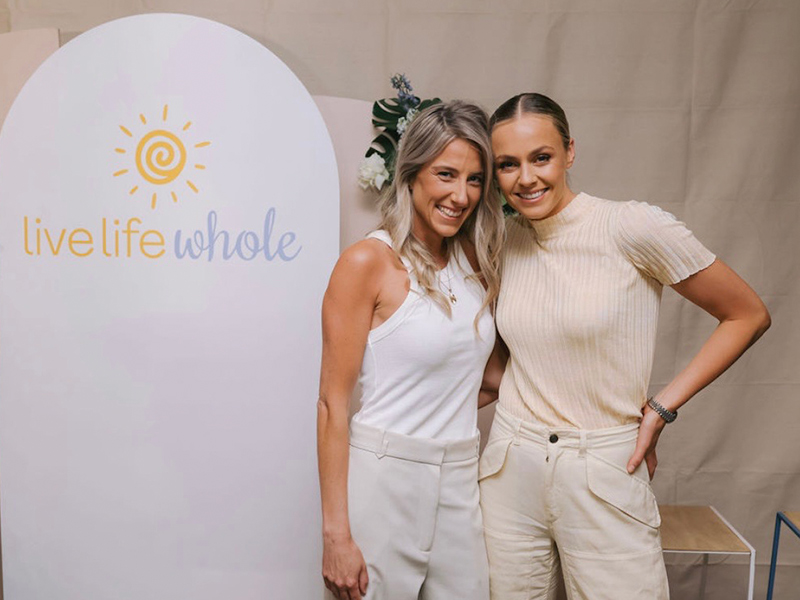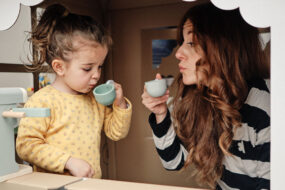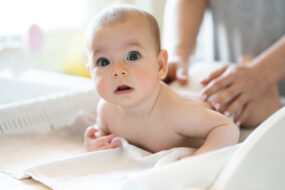How a joint passion for women’s health is helping Australian girls
The House of Wellness TV co-host Jacqui Felgate talks to the founders of the Live Life Whole project about their mission to help young Aussie women.
Sarah Roughead grew up in country Victoria where there was little support to help navigate the teenage years.
If there was any advice at all, the 33-year-old recalls, it came from her mum – beyond that, any issues teens faced such as what was happening to not just their bodies but also their minds were rarely spoken about in families and communities.
“I experienced my own physical and mental challenges during my youth, which carried on into my early 20s,” Sarah, mum to Pippa, five, and two-year-old Will, says.
It was through her health struggles that Sarah met Megan Dickinson – a physiotherapist and nutrition and health coach who founded the Live Life Whole project.
With similar backgrounds, their friendship soon grew, as did their joint passion for women’s health and helping the many young women and girls still suffering in silence.
As a result, Sarah decided to team up with Megan as a business partner at Live Life Whole.
How Live Life Whole helps young women and girls
An evidence-based project, Live Life Whole aims to equip teens and their families with tools for physical, emotional and mental health.
“A big part of what we are hoping to do is to teach young women what is normal and what is not, getting them to trust in their body and what they are feeling,” Sarah says.
“We want to encourage girls to stick their hands up and have the conversation with Mum or Dad or a supportive adult – to have (the girls) say, ‘Hey, this doesn’t feel right and I think I need to get this looked at’.”
Following its launch last November, the project was presented to 40 schools, out of which 35 took it up.
The program draws on the expertise of a range of health professionals, including a gynaecologist, an endocrinologist, a clinical psychologist, a body image expert, sports dietitians and physiotherapists.
It is mapped into a deliverable format over six modules for students in years 7-10, with an online offering accessible to educators, coaches and parents.
Megan says by giving families knowledge and tools, they can know where to seek help, “and know they are getting the right information from credible health professionals”.
- Girl power: How to raise empowered daughters
Ways Dads can play a role, too
Sarah, who is married to retired Hawthorn AFL champion Jarryd Roughead, says providing emotional support for girls is no longer a role that should be left to the females of the family.
One of the great joys in her life is watching the bond develop between her daughter and husband, who has had his own health battles after being diagnosed with, and then beating, skin cancer.
“For so long, many fathers had a strong physical presence: kick the football, play catch, let’s have a wrestle,” Sarah explains.
She says fathers now have to be in tune with the emotional and physical needs of the child to nurture and support them.
“It’s not just about the mothers – it’s about making sure our daughter is just as comfortable talking about periods with Jarryd as she is with me,” she says.
Sarah acknowledges conversations around periods can be difficult.
“There is such a stigma around periods – there is embarrassment, and (many girls) don’t want to get their period, I understand that,” she says.
“But removing the stigma and having these important conversations across all of the age groups and genders is a start.”
- Colour vision: How street art is changing kids’ lives
Why knowledge is power for women and girls
Megan believes arming women and girls with the right information is imperative.
“I’ve been a physio by trade, working with young women, girls, mothers and those going through their pregnancy journey,” Megan says.
“I was hearing the stories of how these women lacked information about nutrition, sleep, stress and menstrual cycles.
“They just didn’t have a good understanding of their health and their bodies.”
The Live Life Whole program tackles topics ranging from early detection of endometriosis, polycystic ovary syndrome and menstrual problems to anxiety, depression and eating disorders.
For the duo, their involvement is immensely rewarding.
“I feel emotional about it because we know by helping one young girl we are helping an entire family,” Sarah says.
“(For example, one girl) couldn’t see a psychologist for six months because of the waitlist and she was able to use our program as a bridging program,” Megan adds.
It’s hoped the program will be introduced into more schools this year.
“Ultimately, I think it will help fewer teens suffer in silence, and more parents feel less overwhelmed when it comes to knowing where to go and where to seek help,” Megan says.





